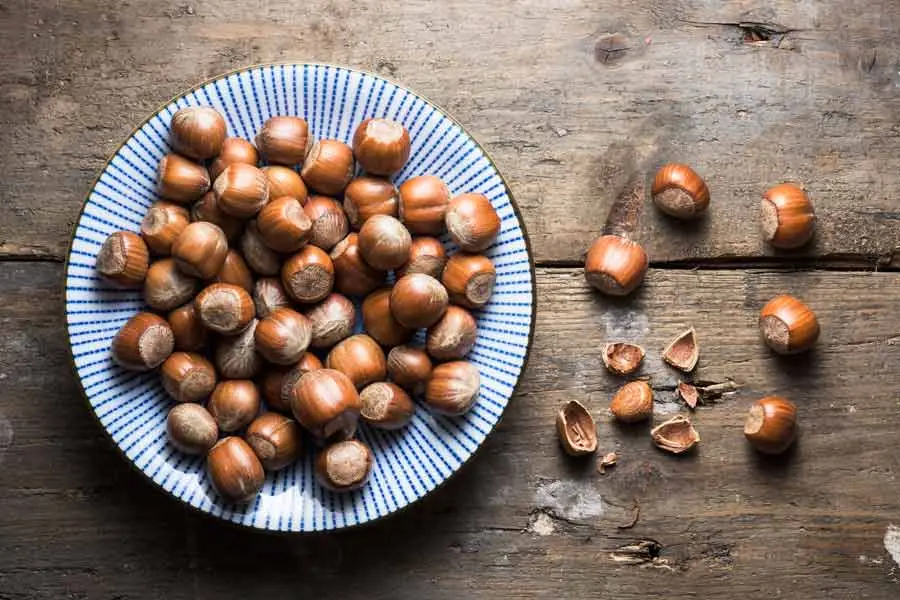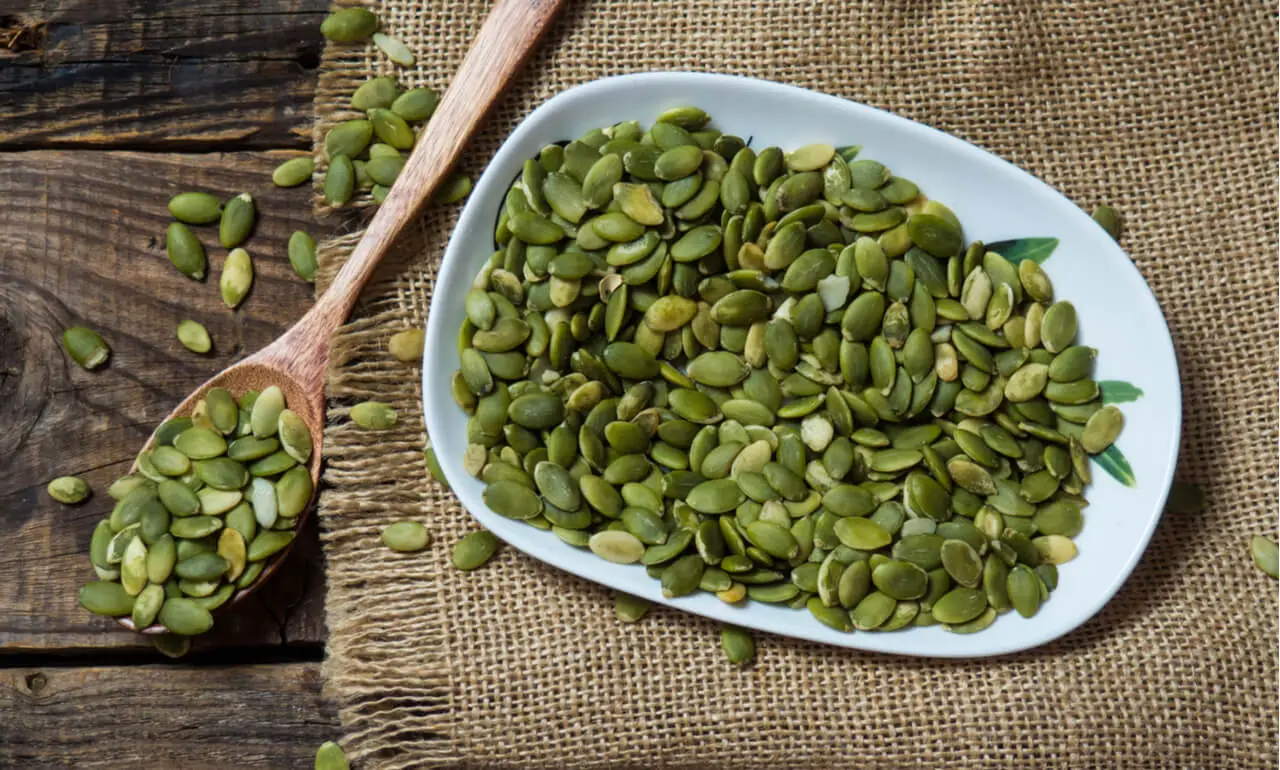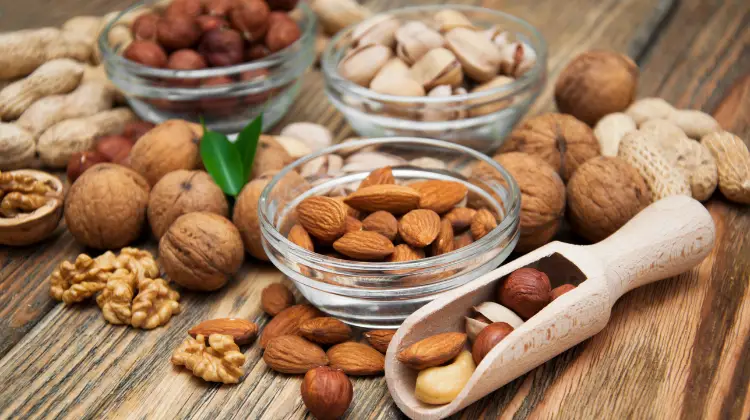It’s no secret that a healthy diet is essential for overall good health. But which nuts and seeds are the most nutritious? And which should you include in your regular diet?
In this article, we’ll share ten of the healthiest nuts and seeds and explain why you should include them in your diet. From omega-3 fatty acids to antioxidants, these nuts and seeds are a great way to boost your health and ward off disease. So read on to learn more about the benefits of including these healthy snacks in your diet!
Here are ten of the healthiest nuts and seeds to include in your diet at least three times per week.
1) Almonds

Almonds are a great source of protein, vitamins, minerals, and antioxidants. They are also a good source of healthy fats, which can help you to feel fuller longer and reduce your risk of weight gain. Additionally, almonds are a good source of dietary fiber, which can help to regulate blood sugar levels and reduce the risk of heart disease.
Almonds are a good source of healthy fats, which can help you to feel fuller longer and reduce your risk of weight gain. Additionally, almonds are a good source of dietary fiber, which can help to regulate blood sugar levels and reduce the risk of heart disease.
2) Walnuts

Walnuts are a great source of omega-3 fatty acids essential for healthy skin and hair, a healthy brain, and a healthy heart. They are also a good source of antioxidants, vitamin E, manganese, and magnesium. In addition, they are a great source of dietary fiber, which can help to regulate blood sugar levels and promote regular bowel movements.
Walnuts also contain omega-6 fatty acids, which are beneficial for the body in several ways. These fatty acids can help to reduce inflammation, promote heart health, and improve joint health. They are also a good source of copper, zinc, and vitamin B6, essential for a healthy immune system. Finally, walnuts are a good source of minerals like magnesium, potassium, and copper. These minerals can help to keep your bones healthy and promote cognitive function.
3) Pecans

These nuts are a great source of vitamin E, which can help improve immune function. They also have an exceptionally high antioxidant content for fat, which is good news for your heart. Pecans are higher in calories than many other nuts, so it might be better not to snack on these daily if you’re trying to lose weight. Still, they’re a perfectly healthy choice if you want something crunchy now and then!
4) Cashews

Cashews are an excellent source of magnesium, a mineral that’s essential for energy production. Research shows that magnesium can improve blood sugar control and insulin sensitivity. Since many people with diabetes are at risk for heart disease, they need to include nuts like cashews in their diet since magnesium is also beneficial for cardiovascular health.
Cashews also contain high amounts of monounsaturated fats, which help reduce LDL cholesterol levels, and oleic acid—the primary healthy fat found in olive oil—which helps lower cholesterol levels.
5) Hazelnuts

Hazelnuts are a great source of healthy fats and minerals, including magnesium, zinc, and potassium. They are also a good source of dietary fiber, protein, and vitamin E. Hazelnuts have anti-inflammatory properties and can help to reduce the risk of heart disease, stroke, and some types of cancer. They are also a good source of B vitamins, including niacin and vitamin B6.
One study showed that those who consumed hazelnuts regularly had a lower risk of developing type 2 diabetes. In addition, they were also found to improve blood sugar control in people with type 2 diabetes. Finally, hazelnuts contain antioxidants that can protect the body against the damage caused by free radicals.
6) Pistachios

These nuts are one of the best sources of vitamin B6, magnesium, vitamin K1, and antioxidants, which help your body detoxify and protect itself from harmful free radicals. Pistachios are also rich in essential minerals like manganese, copper, potassium, and iron, all of which play an important role in energy production and many other bodily functions. However, pistachios are high in cholesterol, so you should use them moderately. You can get more healthy fats into your diet by snacking on a handful rather than gorging yourself on a bowl.
7) Flaxseeds
 Flaxseed is a plant-based omega-3 fatty acid, which means that it provides essential fatty acids that the body cannot make on its own. These fatty acids are important for a healthy immune system, joint health, and heart health. Additionally, flaxseed is a source of fiber and antioxidants, which can help to reduce the risk of cancer and other chronic diseases.
Flaxseed is a plant-based omega-3 fatty acid, which means that it provides essential fatty acids that the body cannot make on its own. These fatty acids are important for a healthy immune system, joint health, and heart health. Additionally, flaxseed is a source of fiber and antioxidants, which can help to reduce the risk of cancer and other chronic diseases.
Some of the most common benefits of flaxseed include:
Weight loss: Flaxseed is high in fiber, which can help reduce the number of calories absorbed by the body.
-Heart health: Flaxseed is a good source of omega-3 fatty acids, which can improve heart health by reducing the risk of heart disease and stroke.
-Improved joint health: Flaxseed is a good source of chondroitin sulfates, which are important for maintaining joint health.
8) Hemp seeds

Hemp seeds are a great source of omega-3 fatty acids, fiber, and protein. They are also a good source of magnesium, zinc, and iron. These nutrients work together to promote optimal health and well-being.
The fatty acids present in Hemp seeds are beneficial for the heart and blood vessels. They help in reducing inflammation and protecting the heart from damage. The fiber present in Hemp seeds helps lower cholesterol levels and promote regularity. Zinc and magnesium help maintain a healthy immune system and prevent conditions like anxiety and depression. Lastly, the iron content in Hemp seeds helps form red blood cells and supports cognitive function.
These benefits make Hemp seeds a great addition to a healthy diet and lifestyle!
9) Pumpkin seeds

Pumpkin seeds are loaded with nutrients and minerals, including magnesium, zinc, selenium, manganese, copper, and potassium. They are also a good source of antioxidants, including vitamin E and beta-carotene. In addition to these important nutrients, Pumpkin Seeds are a good source of fiber, which can help keep you feeling full for longer and help to reduce the risk of obesity and heart disease.
Another benefit of Pumpkin Seeds is that they are a good source of dietary protein. This means that they can help build and repair muscle tissue, increase strength and endurance, and support a healthy immune system. Finally, pumpkin seeds are a good source of healthy Omega-3 fatty acids. These fatty acids are essential for brain development, heart health, and cell membrane function.
10) Sunflower seeds

Sunflower seeds are a great source of omega-3 fatty acids, beneficial for your overall health. These fatty acids can help to reduce the risk of heart disease, improve your cognitive function, and reduce inflammation. They are also a good source of vitamin E, a powerful antioxidant that can help protect cells from damage.
Sunflower seeds are also a good source of magnesium, which is essential for maintaining healthy blood pressure and preventing calcium loss. They are also a good source of zinc, which has anti-inflammatory properties and can help prevent diseases like Alzheimer’s. In addition, they are a good source of copper, which is important for normal blood vessel function and the prevention of tumor growth.
All in all, sunflower seeds are a versatile and nutritious addition to your diet!
Conclusion:
As you may know, nuts and seeds are high in critical nutrients and antioxidants that can benefit your general health. After reading this article, you may have a better understanding of the healthiest nuts and seeds you should include in your diet. If you’re looking for a healthy snack that will give you the nutrients your body needs, then you should definitely consider eating the healthiest nuts and seeds. These delicious and nutritious foods are loaded with essential fatty acids, vitamins, and minerals that can help to improve your health and well-being.






